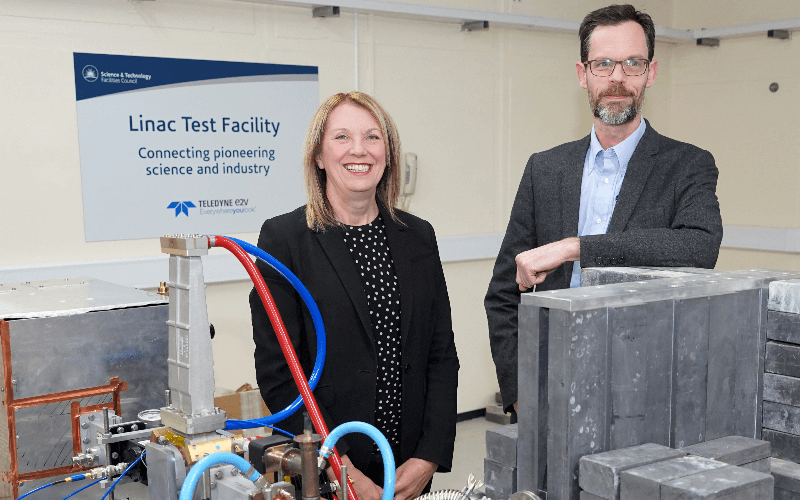January 13, 2020
Smugglers beware! A new generation of cargo scanning is on its way
Particle accelerators at STFC’s Daresbury Laboratory are playing an important role in the development of a new generation of cargo screening technologies, capable of detecting firearms, narcotics and weapons hidden within dense cargo.

According to the Department of Transport, more than 250 tonnes of cargo passed through customs into the UK last year. Screening for illicit material is high priority.
Now, researchers from Rapiscan Systems, a leading global provider of X-ray scanning technologies, in collaboration with the University of Manchester, are developing a new generation of detector system that will lead to dramatic improvements in the quality of X-ray images for cargo and vehicle security screening systems, particularly in dense cargo.
X-rays produced by high-energy particle accelerators have long been used to screen cargo crossing international borders. However, this method can be subjective, mainly outlining just the shapes of objects, without the ability to see clearly any objects deeply concealed in metal containers.
Rapiscan Systems’ revolutionary technology relies on the ability to measure photon energies - elementary particles in the form of X-rays. When screening dense cargo with high-energy X-rays, the strength of the photons detected changes according to the contents of the cargo they are penetrating. The ability to identify individual X-rays and measure their energies, whilst filtering out any other unwanted signals or ‘noise’, bears a direct positive correlation with the quality of the resulting radiographic image that an operator could use to identify concealed illicit material.
Using the ‘Compact Linac’ particle accelerator at Daresbury Laboratory, at Sci-Tech Daresbury in the Liverpool City Region, Rapiscan Systems is developing and testing a prototype for a new fast detector system that will measure these photons with unprecedented accuracy and speed.
A compact electron beam and X-ray linear accelerator, the Compact Linac is capable of generating high precision electron beams at energies of up to 6 Million Electron Volts, at pulse widths as low as 500 billionths of a second.
Dr James Ollier, Senior Radiation Physicist, Rapiscan Systems, said: “Rapiscan Systems is committed to the development of new and innovative imaging techniques to ensure the safety and security of cargo transport across the world. Access to the Compact Linac accelerator and expertise available to us at Daresbury Laboratory has been key for successfully testing our new technologies and this would have been impossible anywhere else in the UK. This project is the latest in several years of research carried out at Sci-Tech Daresbury and I am very excited about what we expect to achieve in the near future.”
Donna Pittaway, Business Development Manager at STFC’s Daresbury Laboratory, said: “Rapiscan Systems’ research, which brings together experts from both industry, academia and the world class facilities and expertise at Daresbury Laboratory, will have a positive impact in making the world a safer place. Industry focussed projects are a key objective for the Compact Linac and I am thrilled that it is playing a key role in making this research happen. I look forward to seeing the full results of the project in the near future.”




